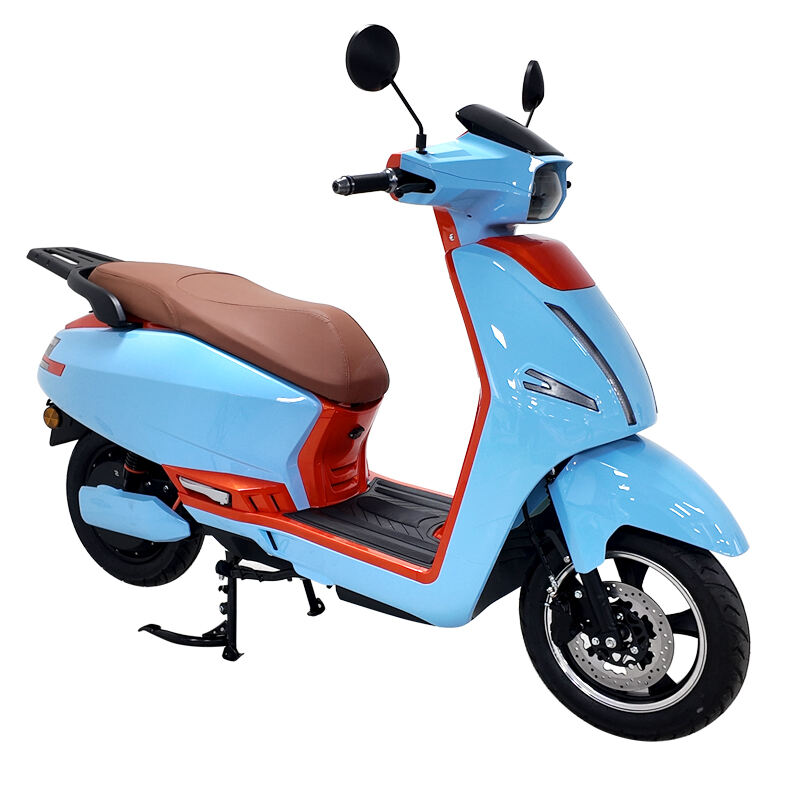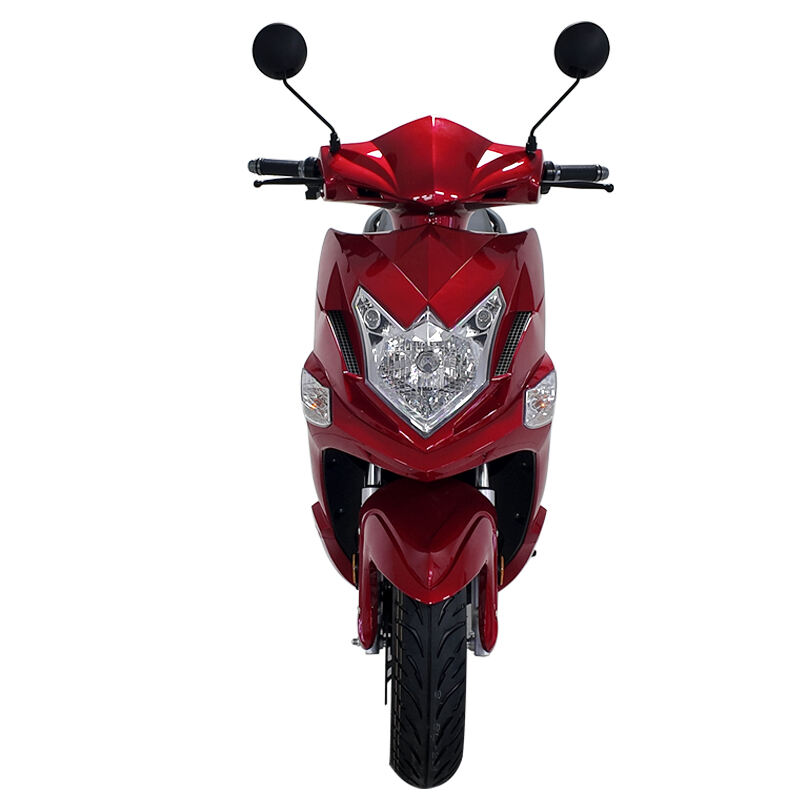Электрическая революция, преобразующая городской транспорт
Городская мобильность претерпевает значительные изменения, и электрические самокаты становятся инновационным решением для современных горожан. Эти стильные и экологичные транспортные средства переворачивают подход к перемещению по загруженным улицам и многолюдным районам. По мере того как города по всему миру сталкиваются с проблемами транспортных заторов и экологических вопросов, электрические самокаты предлагают перспективную альтернативу, сочетающую удобство, устойчивое развитие и эффективность.
Растущая популярность электрические скутеры отражает более широкий сдвиг в предпочтениях городского транспорта, особенно среди молодых поколений, которые придают значение экологической ответственности и гибким вариантам передвижения. От занятых профессионалов, добирающихся до работы, до студентов, перемещающихся по кампусу, эти универсальные транспортные средства становятся неотъемлемой частью городской транспортной экосистемы.
Влияние на окружающую среду и преимущества устойчивого развития
Снижение углеродного следа посредством электромобильности
Электрические скутеры являются важным шагом вперед в сокращении городских выбросов углерода. В отличие от традиционных транспортных средств, использующих ископаемое топливо, эти электрические устройства не производят прямых выбросов во время эксплуатации. Один электрический скутер может помочь предотвратить выбросы сотен килограммов углекислого газа ежегодно, если использовать его вместо поездок на автомобиле.
Экологические преимущества выходят за рамки сокращения выбросов. Электроскутеры способствуют снижению уровня шума в городских районах, создавая более комфортные условия для жизни в мегаполисах. Их компактные размеры и эффективное потребление энергии также означают меньшую нагрузку на городскую инфраструктуру и уменьшение потребности в парковочных местах, которые часто занимают ценные городские площади.
Устойчивое производство и управление жизненным циклом
Ведущие производители все больше сосредотачиваются на устойчивых методах производства электроскутеров. Среди таких методов — использование переработанных материалов, внедрение энергоэффективных производственных процессов и проектирование с учетом долговечности. Индустрия также разрабатывает инновационные решения для переработки аккумуляторов и ответственного утилизации компонентов по завершении их жизненного цикла.
Современные электрические самокаты создаются с расчетом на долговечность, они оснащены сменными частями и модульными конструкциями, которые продлевают срок их службы. Такой подход не только снижает воздействие на окружающую среду, но и делает обслуживание более экономичным как для операторов, так и для пользователей.

Экономические преимущества Электросамокат Интеграция
Экономические выгоды для пользователей и городов
Экономическое обоснование использования электрических самокатов убедительно как для индивидуальных пользователей, так и для городских администраций. По сравнению с содержанием личного автомобиля, электрические самокаты позволяют значительно сэкономить на топливе, парковке, страховании и расходах на техническое обслуживание. Регулярные пользователи могут экономить тысячи долларов в год, переходя на электрические самокаты для поездок на короткие расстояния.
Города получают выгоду от снижения затрат на обслуживание инфраструктуры, поскольку электрические самокаты наносят минимальный ущерб дорогам по сравнению с более тяжелыми транспортными средствами. Кроме того, интеграция электрических самокатов в системы общественного транспорта может помочь оптимизировать городские транспортные сети и сократить потребность в дорогостоящей парковочной инфраструктуре.
Создание рабочих мест и экономический рост
Индустрия электрических самокатов создала множество рабочих мест в различных секторах. От производства и дистрибьюции до обслуживания и эксплуатации, растущее внедрение электрических самокатов способствует созданию рабочих мест как в традиционных, так и в новых отраслях. Местные экономики выигрывают от появления сервисов по аренде самокатов, инфраструктуры зарядных станций и сервисных центров.
Отрасль также стимулирует инновации в смежных областях, таких как технологии аккумуляторов, мобильные приложения и решения для умных городов. Этот эффект распространения способствует более широкому экономическому росту и технологическому прогрессу в городских районах.
Развитие безопасности и инфраструктуры
Улучшенные функции безопасности и нормативные акты
Современные электрические скутеры оснащены передовыми функциями безопасности для защиты водителей и пешеходов. Сюда входят улучшенные системы освещения, надежные тормозные механизмы и интеллектуальные системы контроля скорости. Производители постоянно инвестируют в исследования и разработки с целью повышения уровня безопасности и соблюдения меняющихся нормативных требований.
Города внедряют комплексные правила и нормы безопасности, специально разработанные для электрических скутеров. Они включают в себя специально отведенные зоны для парковки, ограничения скорости в пешеходных зонах и обязательные требования к средствам безопасности. Программы информирования пользователей способствуют ответственному использованию скутеров и повышению осведомленности о мерах безопасности.
Адаптация инфраструктуры и градостроительное планирование
Растущее внедрение электрических самокатов стимулирует значительные изменения в планировании городской инфраструктуры. Города инвестируют в обустройство выделенных полос, станций зарядки и специальных парковочных зон, чтобы безопасно и эффективно разместить эти транспортные средства. Инициативы по созданию умных городов все чаще включают в свои планы развития элементы инфраструктуры для электрических самокатов.
Городские планировщики по-новому подходят к организации уличных пространств, чтобы создать более удобные и безопасные условия для различных видов транспорта, включая электрические самокаты. Эта трансформация включает в себя более широкие велосипедные дорожки, улучшенные указатели и стратегическое размещение зарядных устройств.
Часто задаваемые вопросы
Какое расстояние могут преодолеть электрические самокаты на одном заряде?
Дальность поездок на электрических самокатах обычно составляет от 15 до 40 миль на одном заряде, в зависимости от модели, емкости батареи, рельефа местности и условий поездки. Модели премиум-класса способны проезжать еще большие расстояния, что делает их подходящими для длительных поездок и продолжительного использования в течение дня.
Электроскутеры разрешены во всех городах?
Правила, касающиеся электроскутеров, различаются в зависимости от местоположения. Хотя многие города приняли эти транспортные средства и разработали четкие правила их использования, в других могут действовать ограничения или конкретные требования. Перед покупкой или использованием электроскутера в вашем районе важно ознакомиться с местными правилами.
Какое обслуживание требуется для электроскутеров?
Для обеспечения оптимальной производительности и безопасности электроскутеры требуют регулярного обслуживания. Сюда входит проверка давления в шинах, тестирование тормозов, очистка транспортного средства и правильный уход за аккумулятором. Большинство задач по обслуживанию просты и могут выполняться владельцами самостоятельно, хотя периодическое профессиональное обслуживание рекомендуется для максимального срока службы.

